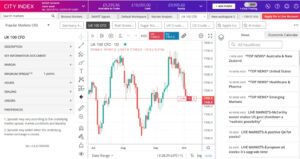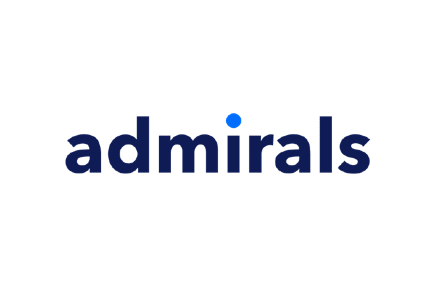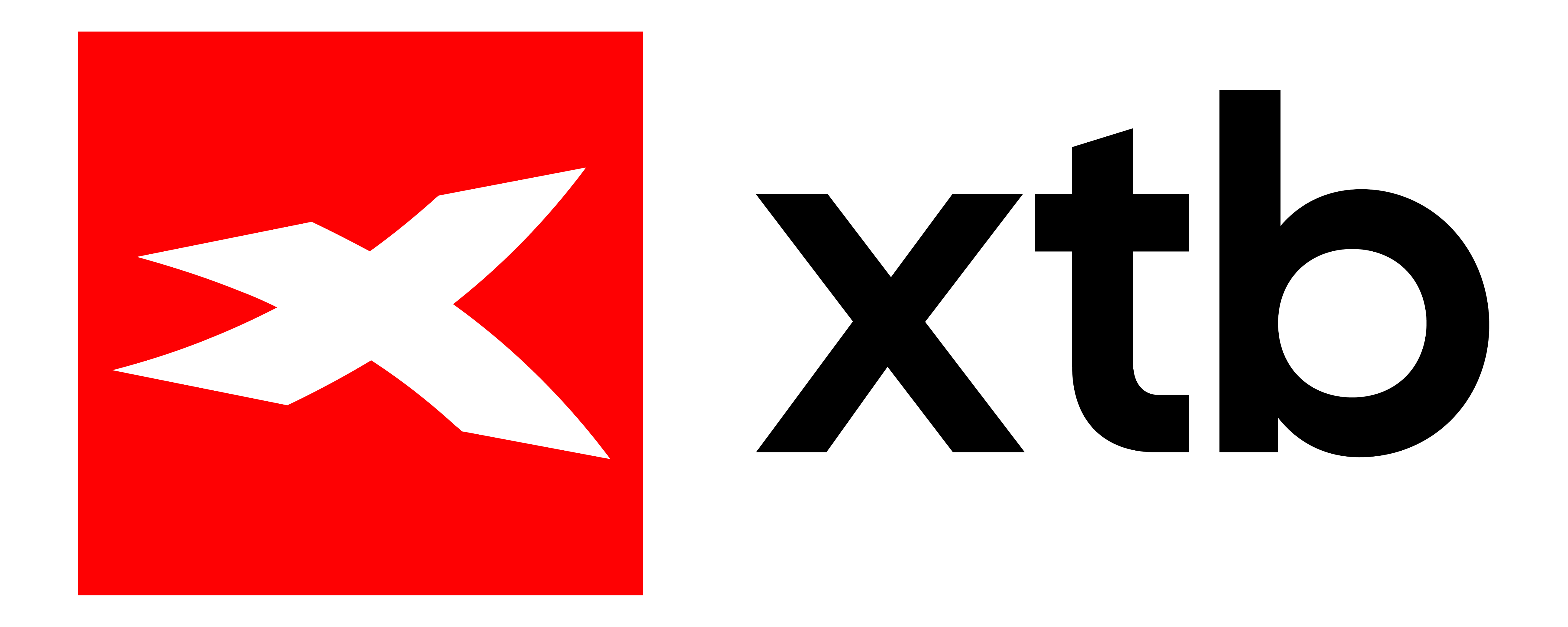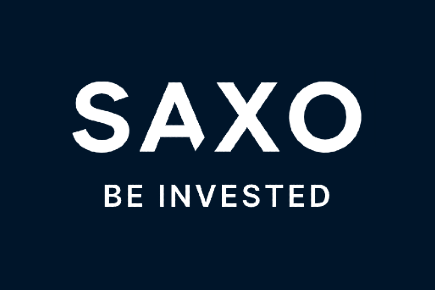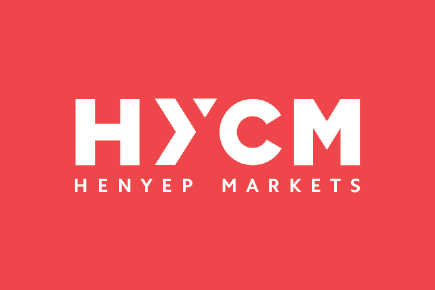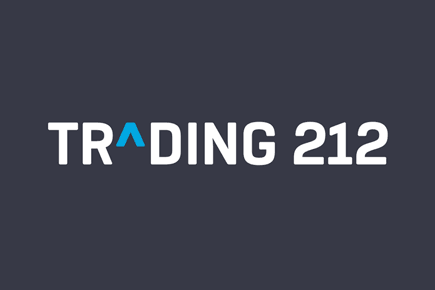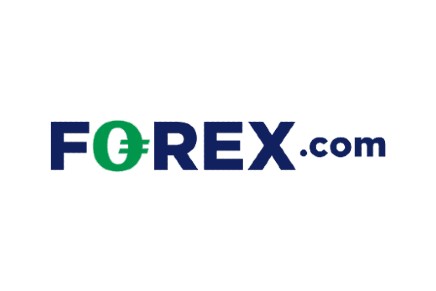I have spent long days and nights researching this sector and I am happy to say that I can bring you my top picks for the best CFD trading platforms in the UK, which offer the widest range of markets, at the best possible prices, with the highest standards of security and protection.
UK CFD trading has increased sharply in popularity over the last decade, especially among advanced traders who have the experience to trade strategically and avoid some of the pitfalls of trading CFDs.
Also consider: Discover UK trading platforms
Browse the best CFD trading platforms for July 2025
See my top CFD trading platforms for UK investors and traders below where I highlight each broker for their products, fees, pros and cons.
Top CFD trading platforms at a glance
Featured Trading platform
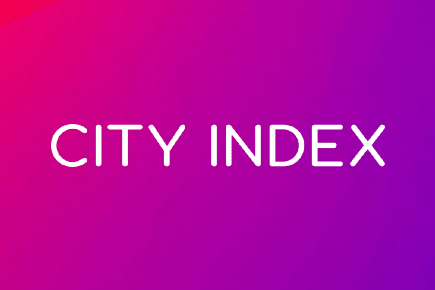
13,500+ assets
- Access to MetaTrader4
- Great trading platforms
- Low-cost trading platform
Featured Trading platform
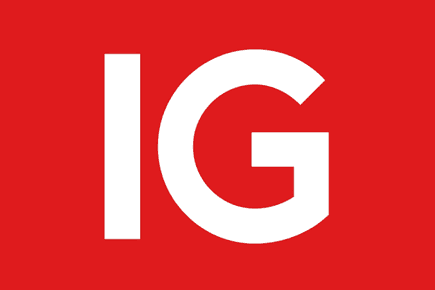
IG Academy
- Extensive market
- Wide range of products
- Great mobile app
Trusted partner

80% of retail CFD accounts lose money
2000+ CFDs
- User friendly mobile app
- unlimited CFD demo account
- Trading academy

Plus500 launched its unique internal data analytical tool ‘+Insights’ in 2022. This is a powerhouse that produces up-to-date analysis on millions of trades from other users, allowing you to get a handle on market trends, trader sentiment and identifying the highest-yielding trades. This could be considered even more valuable than copy trading, as it allows traders to harness the wisdom of crowds.
On the negative side of the coin, there is no MetaTrader platform available here so loyalists will be disappointed. In addition, education is minimal and there is an inactivity fee should your account lie dormant.
What I like about trading CFDs on Plus 500
There are over 2800 CFDs to choose from at Plus500 which should be sufficient for any appetite. This includes over 25 commodity CFDs, 90 ETF CFDs, indices (country and sector) CFDs, over 100 options CFDs, and worldwide shares CFDs.
I am also impressed with the proprietary trading platform which is well-suited to active traders looking for competitive pricing and multilingual (16) 24/7 support through WhatsApp, chat, and email.
Pros
- no commissions, spreads and other fees apply
- Tight spreads
- Guaranteed stop-loss orders
- Low minimum deposit
- No deposit or withdrawal fees
- Massive range to assets and financial markets available
Cons
- Inactivity fees
- Education
Plus500 Fees
| Inactivity fee: | $10 per month after 3 months of inactivity |
| Withdrawal fee: | $0 |
| Average spread: | 0.8 |
Assets available from Plus500
- Forex
- Commodities
- Shares
- Options
- ETFs
- Indices
CFDs are complex instruments and come with a high risk of losing money rapidly due to leverage. 80% of retail investor accounts lose money when trading CFDs with this provider. You should consider whether you understand how CFDs work and whether you can afford to take the high risk of losing your money.
- Browse the best CFD trading platforms for July 2025
- What are Contracts for Difference?
- Who are CFDs good for?
- Where can I trade CFDs?
- What are the advantages of trading CFDs?
- How to identify the best CFD brokers in the UK
- How to start trading CFDs
- CFD Trading in summary
- CFD Frequently asked questions
City Index is a low-cost, well-established CFD and spread betting platform that provides access to more than 40 options markets, with daily, monthly, and quarterly contracts on offer. City Index is part of the NASDAQ-listed StoneX group.
Key Features
- Access 40+ options markets in indices, FX, metals, and commodities
- Quality news feeds from Reuters and in-house research
- Economic calendar and social media presence for retail investors
- Choice of trading platforms, including Metatrader 4 (MT4)
- Beginner-friendly educational resources
- Powerful research tools for market understanding
- Comprehensive trading tools and market news from Reuters
Pros:
- Low-cost trading platform
- Great choice of assets
- Excellent education and research tools
- Great customer support
Cons:
- No MetaTrader 5
- Inactivity fee applied
Service Fees:
- Buy/Sell Spreads: Rather than charging commission, City Index’s charges are incorporated into the spread. You’ll need to open an account (or demo account) to see spreads on their 1,000s of markets but, depending on the market, both fixed and variable spreads are offered. These start at margins from 5% and fixed spreads from 0.4pts.
- Commission: There is no commission on spread betting markets. With CFDs, you’ll only pay commission when trading shares. Commission for these trades is typically 0.08%.
- Overnight funding: Overnight financing fees on both long and short positions are 2.5% +/- the benchmark regional interest rate.
- Guaranteed Stop Order: A charge is made for use of this feature. For full details, check the website.
- Deposit / Withdrawal fees: No charges.
- Inactivity fee: A monthly inactivity fee of £12 will be applied for accounts that are inactive for 12 months or more.
- Currency conversion: Spread betting accounts are not affected because all trades take place in one base currency, usually sterling. Fees apply on CFDs. Check the website for full details.
- Borrowing costs for shorting CFDs: Borrowing costs are incurred when you short a shares CFD position. Very few markets will incur a borrowing charge – check the relevant market information sheet for details.
Investment Types:
- Indices
- Shares
- Forex (FX)
- Commodities
Best for:
City Index is a good option for beginners and mid-level traders seeking an uncomplicated platform from which to access CFDs and spread betting.
CFDs are complex instruments and come with a high risk of losing money rapidly due to leverage. 71% of retail investor accounts lose money when trading CFDs with this provider. You should consider whether you understand how CFDs work, and whether you can afford to take the high risk of losing your money.
IG is a highly trusted investment platform that is both regulated by the Financial Conduct Authority and listed on the London Stock Exchange. IG is one of the largest Forex and CFD brokers in the world, with an excellent range of education materials and free CFD trading courses on the IG Academy to help you develop your understanding of the financial markets.
With IG, traders can choose to trade on over 18,000 financial markets with IG’s own platform, or alternatively MetaTrader 4 or ProRealTime, making this platform the best overall CFD stock broker in the UK.
IG were the 2020 winner for Best CFD Provider at the Online Personal Wealth Awards.
What I like about trading CFDs on IG
IG provide CFD traders with negative balance protection as well as the ability to open a position for a fraction of the cost with their competitive margin rates. Custom price alerts allow traders to react immediately to changes on either the web-based platform or from the mobile trading app.
Pros
- Free withdrawals and deposits
- Extensive range of financial markets
- Excellent customer support
- Traders can choose from three platforms
Cons
- High stock CFD fees
- High minimum first deposit
IG Fees
| Shares: | EU and UK Shares 0.10% US Shares 2 cents |
| Forex: | 0.6 minimum spread |
| Indices: | 0.1 minimum spread |
| Commodities: | 0.3 minimum spread |
| Inactivity fee: | £12 per month after 2 years of inactivity |
| ProRealTime Charts: | £30 a month |
| Currency conversion: | 0.5% |
Assets available from IG
- Forex
- Indices
- Shares
- Commodities
- Other financial markets including options, interest rates, bonds, sectors and more
Spread bets and CFDs are complex instruments and come with a high risk of losing money rapidly due to leverage. 71% of retail investor accounts lose money when trading spread bets and CFDs with this provider. You should consider whether you understand how spread bets and CFDs work, and whether you can afford to take the high risk of losing your money.
Admirals have a great selection of CFDs including 19 cash indices, 25 index futures, 28 commodities and over 3400 individual stocks. This is all across a number of global stock exchanges that include the New York Stock Exchange (NYSE), the London Stock Exchange (LSE) and the Tokyo Stock Exchange (TSE).
What I like about trading on Admirals
In addition to their very competitive pricing, Admirals offer a lot of tools to help manage volatility including:
- Limit maximum price slippage on stop and market orders
- Cancellation of pending orders on price gaps
- Cancellation of stop orders with trigger prices exceeding predefined maximum slippage
- Market execution of limit orders
- Activation of stop orders using reversed quotes
- Partial execution of limit orders
Fees: Commission-free trading with spreads that average at around 0.6 pips on the EUR/USD
Minimum balance: $100
Products available: Trade MT5, Ivest MT5, Zero MT5, Bets MT5, Trade MT4, Zero MT4
CFDs are complex instruments and come with a high risk of losing money rapidly due to leverage. 76% of retail investor accounts lose money when trading CFDs with this provider. You should consider whether you understand how CFDs work and whether you can afford to take the high risk of losing your money.
eToro provide access to over 3118 stocks, 73 cryptos, 26 commodities, 49 currencies, 20 indices, and 317 ETFs with a minimum deposit of $50.
The trading platform can be accessed on both desktop and mobile phone and is easy to use and well-designed showing detailed information on your trades including exact profit and loss amounts.
eToro also provide traders with a demo account where they can experience trading free from any risk with $100,000 before opening a live trading account.
eToro has strict levels of regulation, including the Financial Conduct Authority here in the UK and other tier-one licences across the globe making them a safe option for trading CFDs.
What I like about trading CFDs at eToro
Where eToro stand out from the competition is with their extensive social trading for CFDs. Their innovative CopyTrader allows less confident traders to follow and copy experienced traders automatically in real time.
Trading CFDs on eToro also comes with a number of features and risk management tools such as real-time alerts and customisable stop loss.
Pros
- Quick and easy account opening process
- Extensive social trading network
- Free stock and ETF trading
- Small minimum deposit
- Free demo account
Cons
- Only available in USD so conversion fees apply
- High non-trading fees
- Limited education resources
eToro CFD trading fees
| Trading fee: | NA |
| Withdrawal fee: | $5 |
| Inactivity fee: | $10 per month after 12 months of inactivity |
Conversion fees from GBP to USD
Assets available from eToro
- Currencies
- Commodities
- Indices
- Stocks
- Cryptocurrencies
{etoroCFDrisk}% of retail investor accounts lose money when trading CFDs with this provider. You should consider whether you can afford to take the high risk of losing your money. Your capital is at risk. Other fees apply. For more information, visit etoro.com/trading/fees
XTB is a top-tier CFD broker known for its low trading fees, diverse tradable instruments, and superior educational resources.
Key Features:
- Proprietary trading platform with excellent usability
- Over 2100 instruments are available for trading
- Comprehensive educational materials, including one-on-one mentoring
- Award-winning platform with accolades like “Best Forex Broker for Beginners” in 2022
Who should use XTB?
XTB is ideal for traders of all levels, especially those aiming to cut down on trading costs.
Final Thoughts:
XTB stands out for its low costs, vast product range, and exceptional educational offerings. While it lacks MetaTrader 4 support, its proprietary platform is robust and user-friendly. It’s a solid choice for both novices and seasoned traders. If you’re looking to minimise trading expenses and access a wide range of assets, XTB might be the best trading platform for you.
Pros:
- Competitive forex spread cost
- 24/7 support
- Extensive asset range
Cons:
- No MetaTrader 4 support
- Fees for withdrawals under certain amounts
- Inactivity charges
Fees:
-
-
- Low forex trading costs
- Inactivity fee after one year of no trading
- £12 fee for withdrawals under £60
-
Products:
-
-
- Forex: 48 currency pairs
- Indices: 20+ global indices
- Commodities: Including gold, silver, and oil
- Stock CFDs: Over 1,850 from global exchanges
- ETF CFDs: Over 100 globally
-
CFDs are complex instruments and come with a high risk of losing money rapidly due to leverage. 75% of retail investor accounts lose money when trading CFDs with this provider. You should consider whether you understand how CFDs work and whether you can afford to take the high risk of losing your money.
With tight spreads and low commissions, it’s little wonder that Saxo have won awards for their platform. Their pricing structure for CFD trading comes in slightly lower than competitor CFD brokers such as IG and there is the opportunity for frequent traders to lower these prices still further with their Platinum and VIP account tiers.
Access to the platform can be conducted from PC, Mac, tablet, or smartphone with power trading tools including charting with over 50 technical indicators, integrated Trade Signals, and innovative risk management tools. Saxo Markets also provides scope for trading Forex in addition to their market CFD trading.
What I liked about trading CFDs at Saxo
The sheer range of over 9,000 CFD instruments has to be the stand-out feature of this platform. This is easily enough for even the most seasoned CFD traders and includes trading on single stocks, indices, forex, commodities, options, and bonds.
Pros
- Excellent, easy to navigate, trading platform
- Extensive product portfolio
- Extensive range of instruments
Cons
- No 24/7 support
- Account verification can be slow
Saxo Market Fees
- CFD spreads as low as 0.85 on UK 100
- Platform fee £25 per quarter if you hold cash funds in your account
Overnight fees
- Long positions incur a financing markup of +3% (classic/platinum accounts) or +2% (VIP accounts).
- Short positions incur a financing markdown of -3% (classic/platinum accounts) or -2% (VIP accounts).
Assets available from Saxo Markets
- Stocks
- Indices
- Forex
- Commodities
- Options
- Bonds
67% of retail investor accounts lose money when trading CFDs with this provider. You should consider whether you understand how CFDs, or any of our other products work, and whether you can afford to take the high risk of losing your money. The value of your investments can go down as well as up. Losses can exceed deposits on some margin products. Professional clients can lose more than they deposit. All trading carries risk.
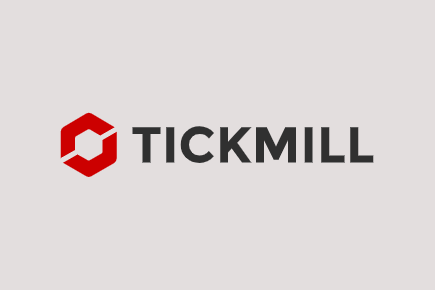
Tickmill is a an excellent option for complete beginners all the way to professional traders. Professionals in particular will be able to take advantage of the competitive free structure offered via the Pro Account.
There are several standout areas for Tickmill, one being the amount of educational resources available for all levels of traders. In addition, research is well accounted for with comprehensive tools and analysis to help with trading decisions.
If you are a fan of the MetaTrader 4 platform then Tickmill is an excellent choice with various packages that offer extremely competitive trading conditions.
GBP/USD spread: 0.3 pips
Number of forex pairs: 62 currency pairs
Minimum deposit: $0
CFDs are complex instruments and come with a high risk of losing money rapidly due to leverage. 71% of retail investor accounts lose money when trading CFDs with Tickmill UK Ltd. You should consider whether you understand how CFDs or our other products work and whether you can afford to take the high risk of losing your money..
HYCM provide CFD trading via the popular MetaTrader platforms in addition to their own proprietary mobile app which won Best Mobile Trading App at the 2022 Forex Expo.
Education is very robust at HYCM, with free access to a demo account in addition to videos and webinars revealing how to analyse market movements and how to trade on the platform in real-time.
It is worth noting that the number of CFDs on HYCM is not as extensive as some of the competition, with 15 stock index CFDs and just 65 stock CFDs.
What I like about trading CFDs on HYCM
HYCM offer three account types, all suited to different traders. The Raw Account, designed to meet the needs of frequent traders, is where you will find the lowest fees, with spreads that start at 0.1 pips.
In addition to these low fees, the raw account provides access to Expert Advisors, a program that will automatically execute a predetermined set of instructions once a certain criteria has been met.
Fees: Spreads that start at just 0.1 pips
Minimum balance: $100
Products available: Fixed Account, Classic Account, Raw Account
CFDs are complex instruments and come with a high risk of losing money rapidly due to leverage. 73% of retail investor accounts lose money when trading CFDs with this provider. You should consider whether you understand how CFDs work and whether you can afford to take the high risk of losing your money.
Trading CFDs at Trading 212 is completely commission free, the only charge to be aware of is the 0.15% levied on trades of stocks and ETFs in a different currency from your account base currency. There is also a low entry point of just £10, and a deposit of this amount will trigger the receipt of a free share worth up to £100.
What I like about trading CFDs on Trading 212
Trading 212 have a dedicated CFD account from where users can trade across a variety of assets including stocks, forex, and commodities. From this account, traders can mitigate some of the risks of trading CFDs with negative balance protection and price point selection from which to stop investing and take profits.
Fees: Commission-free trading, 0.15% charge for trading in a different currency
Minimum balance: $10
Products available: Invest Account, ISA, CFD Account
CFDs are complex instruments and come with a high risk of losing money rapidly due to leverage. 77% of retail investor accounts lose money when trading CFDs with this provider.You should consider whether you understand how CFDs work and whether you can afford to take the high risk of losing your money.
Forex.com is widely considered one of the safest trading platforms with tight regulation in several locations and a parent company that is listed on the NASDAQ.
In addition, UK traders can take advantage of negative balance protection and the knowledge that all client funds are held in separate segregated accounts.
The mobile app utilises biometric ID and two-factor authentication is applied across all the platforms.
What I like about trading CFDs at Forex.com
Forex.com is a great all-round broker. It offers CFDs on stock indexes, stocks, commodities, bonds, and cryptos. There are several good account options to choose from, as well as a variety of platforms.
One of the strong suits at this broker is the education section which has been helpfully organised by experience level and is available across several different channels. This is especially good for beginners.
Fees: Spreads that start at 0.6 pips
Minimum balance: $100
Products available: Standard Account, MetaTrader 4, DMA Account
CFDs are complex instruments and come with a high risk of losing money rapidly due to leverage. 76% of retail investor accounts lose money when trading CFDs with this provider. You should consider whether you understand how CFDs work, and whether you can afford to take the high risk of losing your money.
What are Contracts for Difference?
Essentially a Contract for Difference or CFD is a contract between a buyer and a seller whereby the buyer must pay the seller the difference in price between the current value of an asset and its value at the time of the contract.
This provides a means for a trader to speculate on the future price movements of an asset, without ever owning any part of the underlying asset. With CFDs, you can speculate on rises or falls in the value of an asset.
When you trade CFDs you are undertaking a contract between yourself, and the CFD broker.
Watch the video below from Capital.com for further information on what CFDs are, or alternatively read CFDs for beginners guide.
What are the disadvantages of trading CFDs?
Of course, as with any investment, there are also potential disadvantages with trading CFDs.
Higher risk than other investments. CFD trading tends to present a higher risk of losing value than other investments. In fact, CFDs are considered to be so risky that investment providers must provide a warning as to how many retail investor accounts lose money when trading with them on their platform. This figure is usually between 50-70%.
Leverage can be a double-edged sword. While leveraged trading gives you the opportunity to magnify your gains trading with a smaller upfront investment, any losses you incur will be magnified, too. So, you may lose money rapidly by trading CFDs. Make sure you fully understand leveraged trading before you invest.
Not a long-term strategy. While investing in some assets can be a long-term investment strategy, trading CFDs is generally not, as the contract has a set expiry date. As a result, they are typically not suitable for long-term investing.
Please note: The value of your investment can go down as well as up and you may not get back the full amount you invested. Past performance is not a reliable indicator of future performance.
CFD trading is potentially lucrative, but these investments are also complex instruments that present a high risk to your money. In fact, more than half of retail investor accounts lose money when trading CFDs.
Please make sure that you know these risks before you start trading and that you’re aware there’s a high chance of losing money rapidly on your investment.
Who are CFDs good for?
There is a large potential to lose money when trading CFDs as they require an advanced trading strategy that is usually utilised by experienced traders only.
When trading CFDs you are speculating on whether the price of an asset will go up, or down. As a trader, you can speculate on the upward or downward movement in price. Therefore, should a trader purchase a CFD that increases in price following that purchase, the trader will offer their holding for sale. The net difference between the price the asset was purchased at, and the price it was sold at, are netted together. This gain will then be settled through the trader’s brokerage account.
However, should the trader predict that the price of the asset will fall in value, an opening sell position can be established. The purchase of an offsetting trade is then used to close the position with the net difference of the loss settling via the CFD brokerage account.
Where can I trade CFDs?
CFDs are illegal to trade in the U.S. however they are legal in:
- United Kingdom
- Germany
- Switzerland
- Singapore
- Spain
- France
- South Africa
- Canada
- New Zealand
- Hong Kong
- Sweden
- Norway
- Italy
- Thailand
- Belgium
- Denmark
- Netherlands
What are the advantages of trading CFDs?
One of the main advantages of trading CFDs is that they can potentially allow you to make money, even when the market is on a downward spiral, although this is not a sure outcome. This was the main factor contributing to the rise in CFD popularity in 2020 when the market was in turmoil following the pandemic. In addition to this, CFD traders can take advantage of the following:
Higher leverage than traditional trading. The standard leverage in the CFD market is subject to strict regulation and now lies in the range of 3% (30:1 leverage) possibly rising to 50% (2:1 leverage). Greater potential returns are a direct result of lower margin requirements which mean less capital outlay for the trader. However, it’s important to point out that whilst this can be advantageous when trading CFDs, it can also lead to greater losses.
Access to the global market. Certainly, the list of best CFD brokers UK contained within this article all provide access to most of the worlds most significant markets, with 24/7 access for investors to trade CFDs.
Shorting at any time. With CFD instruments, traders are at liberty to go short at any time and do not need to concern themselves with the shorting rules that govern certain markets and require the trader to borrow the instrument before selling short. This in turn can avoid borrowing costs.
Hedging. CFD trades are particularly useful to hedge risk. Traders can use CFDs to lock in the value of a share portfolio at a specific point, meaning that should the value of the stock portfolio fall, the losses experienced will be offset by the profit generated by the CFD position.
Margin trading is another advantage of CFDs. Put simply, margin trading means that the trader is only putting a percentage of the total notional value of a trade.
Despite all these advantages, traders considering CFDs should remain aware that spread bets and CFDs are complex instruments and come with a high risk of losing money rapidly due to leverage.
How to identify the best CFD brokers in the UK
Thankfully for CFD traders, there is plenty of competition in the UK market between the best CFD brokers. The result of this competition is more favourable terms for the trader including better pricing structures and enhanced features. Below I have detailed what to look out for when choosing the best CFD trading platform UK.
Regulation
All the best CFD brokers I have listed in this article are authorised by the Financial Conduct Authority or a suitable alternative. Tight regulation will protect you and your money when CFD trading.
Assets
The assets provided by your chosen best CFD broker will determine the opportunities you have to make a profit when CFD trading. This can vary considerably from one CFD broker to another so it’s worth checking your CFD broker offers some or most of the following:
- Commodities
- Cryptocurrencies
- Forex
- Stocks
- Bonds
- ETFs
- Indicies
Fees
There are a number of fees to be aware of when selecting your preferred platform from which to trade CFDs. These include commission, overnight charges and the spread which is the difference between the bid price (the price you paid for the asset) and the offer price at the time of the trade.
There is usually no cost involved to trade forex pairs and commodities, however, typically CFD brokers will charge a commission for stocks, however some of the platforms listed above have waived this completely in order to remain competitive. Commissions can be charged as a percentage of the sale, or as a flat fee. If you buy a position and sell it later, this would constitute 2 separate commission payments.
Should you take a long position and hold the position overnight, there will often be an overnight charge. This will usually be charged as an interest charge for each of the days that you hold your position.
In addition to the pricing laid out above, you should also be aware of any non-trading costs including deposit or withdrawal fees and any inactivity fees.
CFD Trading Platform
The ease of use of the CFD trading platform is essential when CFD trading as this will dictate how quickly and easily you can execute your trades in response to market movement. It is also worth checking that the CFD trading platform of your choice is supported on desktop and mobile device.
The CFD trading platform of your choice should provide access to education material, research tools, and be quick and easy to navigate.
Also consider: CFD Trading Platform for Beginners
Trading tools and features
The art of CFD trading is helped greatly with innovative trading tools to assist you with your strategy. The most obvious of these is an easy to use, well laid out platform, that supports the method of use you prefer, whether it be desktop or mobile app.
A free demo account is also extremely useful so you can get to grips with the CFD broker and the tools provided before risking any of your own funds on live trading accounts.
Copy trading is also a useful function, utilised by many novice traders who prefer to mirror the trading activities of more experienced and successful traders before going it alone.
Technical indicators can help you make a success of your CFD trading, however, you will need to understand how technical indicators work. Technical indicators can help you make head or tail of pricing trends however, not all CFD brokers will offer a comprehensive suite of technical indicators so this is worth checking.
Educational resources are essential if you are new to CFD trading or are looking to advance your skills. Community forums, how-to guides, webinars and educational videos are just some of the things to be on the lookout for.
Leverage is important for UK CFD traders who have a higher tolerance for risk. The best CFD brokers will offer leverage of up to 1:30 or 1:5 should you be trading share CFDs. Due to the fact that CFD trading involves leverage, day traders can find this of significant benefit in order to trade small price fluctuations.
Negative balance protection can help protect you against severe losses and is therefore essential. This level of protection can prevent an unsuccessful trade from pushing your account into the red. This is because negative balance protection will close your position automatically the moment your CFD account hits zero.
Deposit and withdrawal options
Not all UK CFD brokers will offer every deposit and withdrawal method, and for your convenience, you should ensure that they accept a deposit method that suits you and check the withdrawal times you should expect. Most CFD brokers will accept credit/debit card and bank transfer as a minimum.
How to start trading CFDs
Trading CFDs using one of the above platforms is a relatively simple process and generally you can be trading in minutes.
Open an account
Once you have selected the CFD broker that is best suited to you, opening an account should only take a few minutes. Simply go to the website and select Open an Account. At this point you will be asked to provide some personal information which could include:
- Full name
- Home address
- Date of birth
- National insurance number
- Email address
- Mobile number
It is also likely that you will be asked to provide ID in the form of passport or driving licence and possibly utility bill or bank statement. This is in response to anti-money laundering laws.
Deposit funds
Most reputable CFD and Forex brokers will offer a decent range of deposit options including debit/credit card, e-wallet, or bank transfer. Check the minimum deposit amount before opening your account to ensure you are happy to meet this requirement.
Place a trade
Once your account has been verified and funded you will be ready to start trading CFDs. At this point I would recommend that you take the time to peruse the educational content provided by the CFD broker before selecting the CFD asset class and clicking on the asset you wish to trade.
CFD Trading in summary
The plethora of CFD trading platforms can be overwhelming and even with the information held within this guide you may be unsure of how to proceed. Given the importance of the decision of which CFD trading platform is best suited to you, I would recommend that you take the time to download and use the demo accounts where possible, in order to obtain a feel for the CFD trading platform you are considering.
Forex & CFDs are complex products, not suitable for everyone and come with the high risk of losing money rapidly due to leverage. You should consider whether you understand how CFDs work and whether you can afford to take the high risk of losing your money.
CFD Frequently asked questions
Do I pay tax on CFD profits in the UK?
What is the difference between spread betting and CFD trading?
The main difference between spread betting and CFD trading is how they are taxed. Spread bets do not attract any capital gains tax, while profits from CFDs can be offset against any losses in the same period for tax purposes.
In addition to this, there are technical differences. Spread betting will stake a sum of money for each point of price movement in the underlying asset whereas CFD trading exchanges the difference in price from the point at which the contract is opened, to when it is closed.

